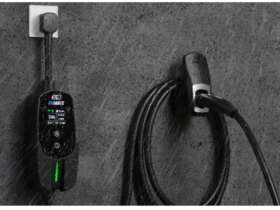Incentive travel is becoming more popular among businesses as a way to motivate employees. It’s about giving trips as rewards for good work, making employees feel valued and inspired.
In the UK, top incentive travel agencies and event companies are experts in creating special travel experiences for companies. They know how to make these trips exciting and memorable, helping businesses boost their teams’ morale and performance.
The Concept of Incentive Travel
Incentive travel is when companies give trips to their employees as a reward. For example, a company might send its top sales team to a beach resort because they met their sales targets.
Another company could take employees who worked hard on a project to a city break in Europe as a thank you. It’s all about giving employees a special experience for their good work.
Why Incentive Travel Works?
This kind of travel program is really effective because it taps into what makes people want to do well at work. It’s about feeling recognised and valued. Think about when you were really looking forward to something exciting, like a vacation. Knowing you have a special trip coming up can make you want to work harder.
Psychologists have long studied what motivates us. For instance, Maslow’s hierarchy of needs shows us that after our basic needs are met, we start looking for things like respect from others and belonging.
Herzberg’s theory tells us that we’re motivated by rewards that make us feel acknowledged and important, not just by avoiding things we don’t want.
Incentive travel works well because it hits these points. It makes employees feel special and appreciated, which are our deep needs. This kind of reward can encourage us to reach our goals at work because it’s about the recognition and feeling of achievement that comes with it.
The Impact of Incentive Travel on Employee Behavior and Motivation
Boosting Morale and Productivity
If you know that you and your team do a great job, you could all win a trip together if you work hard. This kind of reward makes work feel more like a fun challenge than a daily routine.
When employees know there’s a chance for an amazing travel experience, they’re more likely to get involved and put in their best effort.
In other words, when people have something exciting to work towards, they work harder, work together better, and feel better about their jobs.
An Opportunity For Better Teamwork and Company Loyalty
When a company treats its employees to a group trip, it’s a great way for everyone to get to know each other better. This kind of experience can turn work colleagues into friends and strengthen the team.
These shared memories from the trip can make everyone feel closer and more connected when they return to work. This feeling of togetherness can make employees more loyal to their team and the company because they feel like they’re part of a family.
Planning Your Incentive Travel Program with a Focus on Psychology
Set Your Goals and Objectives
When planning a trip to reward your employees, it’s important to know what you want to achieve with it. You want the trip to motivate them in specific ways, like encouraging them to work better together or reach sales targets.
This is where a good incentive travel agency comes in. They’ll help you determine exactly what you want to accomplish with your incentive trip and design a trip that encourages those behaviours and attitudes.
For example, they can include team-building activities in the travel plan if you want to improve teamwork.
Choosing the Right Destination and Activities
Picking the perfect place for your incentive trip is key. Consider what your team likes and what activities will excite them.
Everyone is different, so what works for one group might not work for another. Here are some tips for selecting the right destination and activities for your incentive travel program, considering the psychological profiles of your workforce:
- Know Your Team: Understand your employees’ interests and preferences. Surveys or informal discussions can help gather insights into what destinations and activities might appeal to them most.
- Keep Things Diverse: Consider various options catering to different tastes. Some prefer adventure and outdoor activities, while others enjoy cultural experiences or relaxation. Offering choices can ensure there’s something for everyone.
- Connect Activities to Goals: Choose activities that entertain and reinforce the team’s goals and values.
- Include Local Culture and Experiences: Choose destinations that offer unique cultural experiences. Allow your team to get to know a new culture. It can be incredibly rewarding and will foster a greater sense of appreciation and broad-mindedness.
- Focus on Employee Well-Being: Choose destinations and activities that promote well-being. Activities like yoga retreats, spa visits, or nature hikes can help employees relax and recharge, enhancing their motivation and productivity.
- Gather Feedback Post Trip: After the trip, gather feedback to learn what worked and what didn’t. This will help you make future incentive travels even more impactful.
Event companies in the UK are professionals at creating special trips that fit your team’s needs. They get to know your team’s likes and motivations, and then they use this information to create unique travel experiences.
Measuring the Success of Your Incentive Travel Program
To determine if your incentive travel program is working, you need to monitor some Key Performance Indicators. Here’s what to look for:
- Employee Productivity: Are your employees getting more done? Look at their work output before and after the trip.
- Teamwork: Notice if there are more collaborative projects and how well they’re going.
- Employee Happiness: Ask your team how they feel. This can be through surveys or casual chats.
- Improvement in Attendance: A drop in absenteeism can indicate that employees are more engaged and motivated.
- Decrease in Retention Rates: Are more employees sticking around? If fewer people leave the job, it might be because the incentive trips make them feel valued and want to stay.
- Improvement in Goal Achievement: Check for improvement in reaching sales targets, project deadlines, or any other important goals.
By tracking these KPIs, you can see the real effect of your incentive travel program on your team. It helps you understand what’s working well and what might need to be changed to improve the program.
Final Words
Incentive travel stands out as a fantastic way to motivate your team. It’s a reward that shows your employees they’re valued, boosts their happiness, and encourages them to work together better.
If you’re thinking about setting up a travel incentive program, getting in touch with a reputable incentive travel agency is the next step.
They have the expertise to tailor a program that perfectly fits your team’s needs and goals, making your next corporate travel experience truly impactful.















Leave a Reply